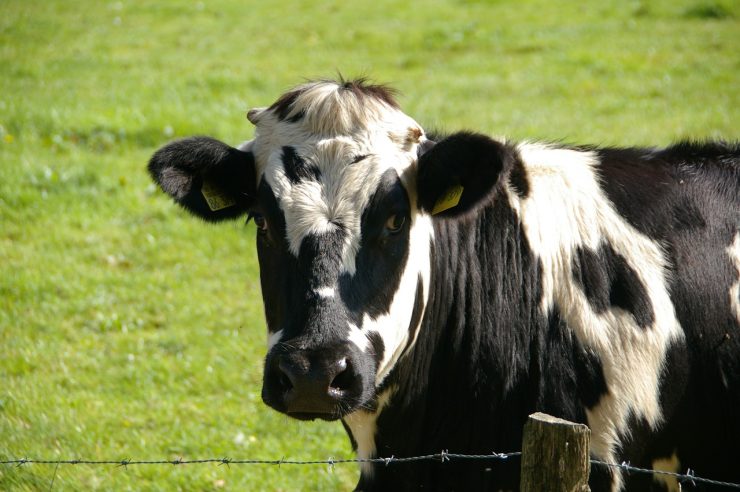Cow’s milk has been around for thousands of years, but a lot of people are moving away from it for various reasons—whether it’s lactose intolerance, dairy allergies, or simply choosing a dairy-free lifestyle. That’s led to a boom in alternative milks, but here’s the catch: a lot of these milk alternatives are not as nutritious as they’re cracked up to be. Many are packed with sugar, fillers, and not much else in terms of nutrients.
You can find milks made from almonds, cashews, hemp seeds, coconut oil, macadamia nuts, rice, oats, and soy. But the sad reality is that many of these “healthy” alternatives are more processed than you’d think, and are full of water, stabilizers like guar gum and carrageenan (which can irritate your digestive system), and sometimes even added sugar.
On the flip side, there are a few “real” alternatives from animal sources—like goat and sheep milk—that offer more nutrition and fewer of the weird additives. They’re higher in protein, healthy fats, and essential vitamins and minerals. So, if you’re avoiding cow’s milk for health reasons, these could be a good option. Let’s dive in!
Cow’s Milk
I’ve been dealing with a dairy allergy for years, and it used to cause all sorts of issues—stuff like congestion, acne, anxiety, and even dark circles under my eyes. Dairy allergies are pretty common, and it can be the culprit behind things like joint pain, skin rashes, digestive issues, and even more serious conditions like autoimmune diseases.
For years, cow’s milk has been marketed as a health food, but it has its problems. Pasteurized, non-organic milk can be linked to a whole range of health issues, from breast cancer to autoimmune diseases like rheumatoid arthritis. Plus, if you’re sensitive to gluten, chances are you might also have issues with dairy, since both contain similar proteins (casein in milk and gluten in wheat).
And don’t even get me started on the treatment of factory-farmed dairy cows. They’re often kept in poor conditions, pumped full of hormones and antibiotics, and fed grains that end up in the milk we drink.
Now, if you can find grass-fed, unpasteurized milk, that’s a whole different story. It’s way healthier. Grass-fed dairy is packed with healthy fats like omega-3s and CLA (which help with fat burning, muscle building, and reducing inflammation). Plus, it has vitamin K2, which helps the body use calcium properly. Raw milk (unpasteurized) is even better because it retains enzymes and beneficial nutrients that pasteurization kills.
But, let’s be real, raw milk isn’t for everyone. It’s a controversial option, and you want to make sure it comes from a trusted source.
Goat Milk
Goat’s milk has been around for a long time—probably longer than cow’s milk in some parts of the world. Goats are easier to raise in tougher environments and are far more eco-friendly than cows (they produce much less methane). Goat milk is widely consumed across the globe, and it’s full of calcium, phosphorus, and vitamin B12. Plus, studies show it’s better for bone health and easier to digest than cow’s milk.
One big perk of goat’s milk is that it mostly contains A2 casein, unlike most cow’s milk, which has A1 casein. A2 casein is less likely to trigger allergic reactions, so it can be a good option for people who struggle with regular cow’s milk. But, just a heads-up, goat’s milk still has a distinct, sometimes strong flavor. Some people love it, others not so much.
The downside? Goats are often raised in similar factory-farmed conditions as cows, and goat milk is usually more expensive. But if you’re looking for an alternative that’s easier on your stomach, it might be worth it.
Sheep Milk
Sheep’s milk isn’t as widely available as cow or goat milk, but it’s an absolute powerhouse when it comes to nutrition. It’s higher in protein, calcium, iron, and vitamins compared to both cow and goat milk. Sheep milk also contains more healthy fats, including omega-3s and monounsaturated fats, which are great for your health. The fat in sheep milk is easier to digest and less likely to contribute to high cholesterol.
Plus, sheep’s milk only contains A2 casein (no A1), which makes it easier to tolerate than cow’s milk. It’s also packed with vitamin K2, which helps your body absorb calcium properly.
But here’s the catch: sheep’s milk is hard to find and often pricier due to the fact that sheep produce less milk and only for a limited time during the year. If you can find it though, it’s definitely worth trying—especially if you’re looking for something with better nutrition than cow’s or goat’s milk.
Bottom Line
When it comes to milk, commercial, pasteurized cow’s milk is often lacking in nutrients, full of allergens, and can contribute to various health issues. If you’re looking for a healthier option, raw, grass-fed cow’s milk from A2 cows is the gold standard.
Goat’s milk can be a great alternative, especially for people with dairy sensitivities. It’s easier to digest and has more healthy fats and nutrients than cow’s milk. Sheep’s milk, while harder to find, is probably the best choice for nutrition, fat content, and ease of digestion. It’s packed with protein, vitamins, and minerals and is generally much more tolerable for those with milk allergies.
So, whether you’re trying to avoid cow’s milk for health reasons or just looking for something with more nutrients, these alternatives from goats and sheep could be the answer. Give them a try if you find them in your local store—you might just find your new favorite milk!











